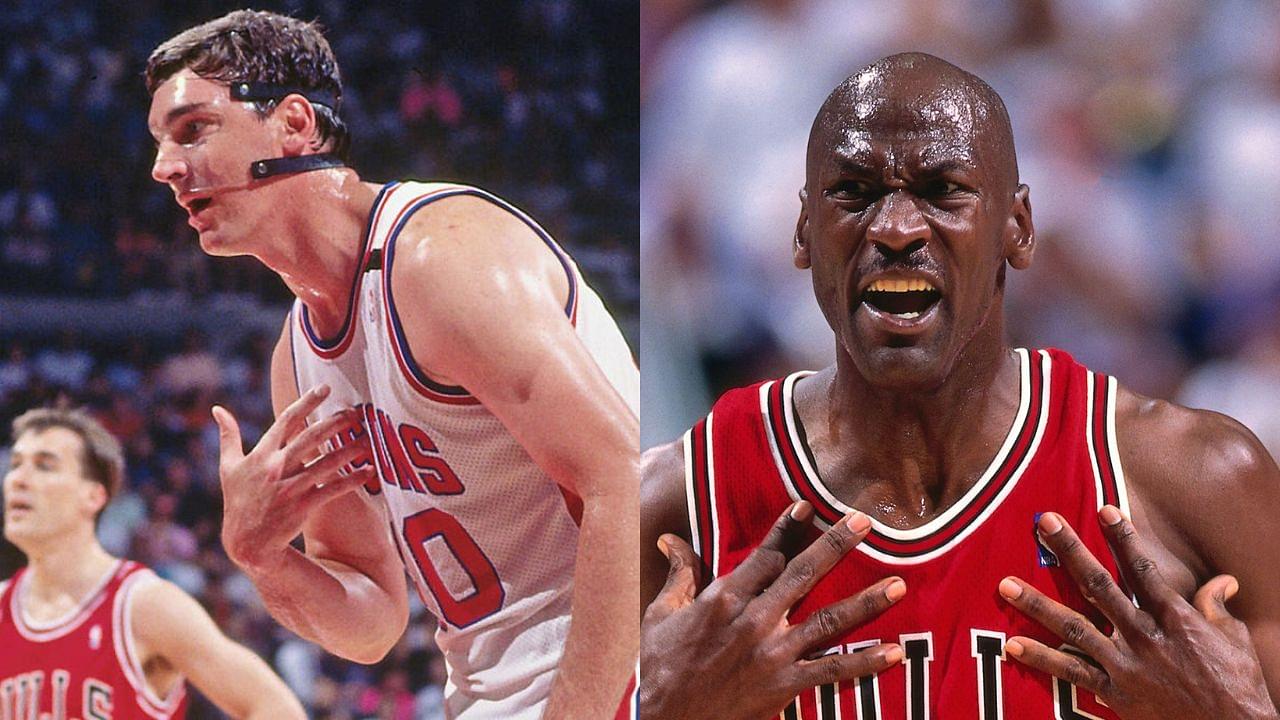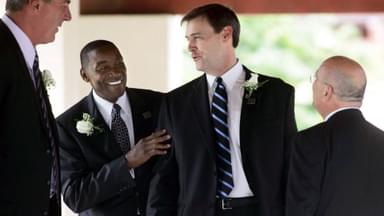Bill Laimbeer said that the way the Pistons would handle Michael Jordan would be to simply knock him to the ground when he tried to drive in.
Advertisement
Michael Jordan had 6 consecutive Playoff appearances that didn’t result in a trip to the NBA Finals. Sidney Moncrief and the Bucks inaugurated his arrival into the postseason his rookie year with a swift gentleman’s sweep. They would then go on to lose to the Boston Celtics 6 games to 0 in two straight first rounds in 1986 and ‘87.
1988 rolls around and the Chicago Bulls have finally met the one team that stands in their way: the Detroit Pistons. Almost as though it were from a storybook, they would meet each other in 3 consecutive series from ‘88 to ‘90 and the Bulls would win one more game than they did the previous year.
- 1988 ECSF- Bulls vs Pistons (1-4)
- 1989 ECF- Bulls vs Pistons (2-4)
- 1990 ECF- Bulls vs Pistons (3-4)
Of course, the tides would shift in 1991 where Michael Jordan and the Bulls played the two-time defending champions yet again in the ECF and would sweep them.
Michael Jordan was knocked to the ground by Bill Laimbeer and company.
The Chicago Bulls and Detroit Pistons players most certainly do not try to hide their disdain for one another even to this day. Everything from the 1992 Dream Team freezeout on Isiah Thomas to the Pistons not shaking the Bulls’ hands after losing in ‘91, their history with one another runs deep and not in a positive way.
Bill Laimbeer was the primary physical presence down-low for Detroit during their golden days and he once went on First Take to break down what they tried to do to Michael Jordan anytime he tried to drive into the lane.
“At that point in his career, he was a one-man band. So, all you had to do was run 3 guys at him and every time he tried to attack the basket, knock him on his butt and make him go to the free throw line to tire him down.”
Jordan had to learn to accept the ancillary parts of his team as not just guys who can pick up the pieces if he failed to generate on the offensive end. The Bulls had skilled individuals and more so than accepting them, he eventually learned to trust them.








